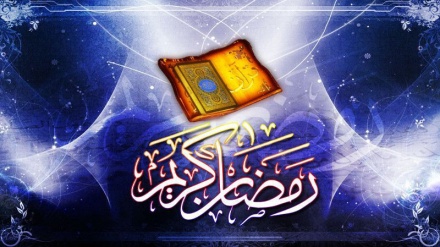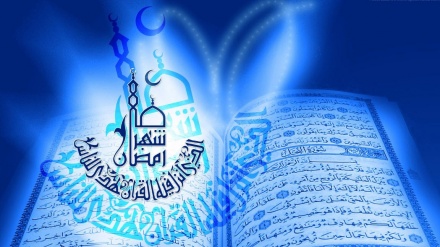Blessed Month of Ramadhan
Welcome to the 5th episode of the series “Blessed Month of Ramadhan”. The month of Ramadhan has been described with different names, which manifest the grandeur of this month and its positive role in development of mankind, in addition to the physical and spiritual benefits it grants human beings for proper cognizance of God and better acts of worship.
Ramadhan has been called the month of patience, the month of relief, and the month immunity from fire.
We start today’s discussion with the valuable remarks of the Almighty’s Last and Greatest Messenger, Prophet Mohammad (Blessings of God upon him and his progeny). The Prophet referred to the virtue of fasting on warm and long days, saying: Whoever fasts for the sake of God in the scorching heat will be heralded by a thousand of angels, who have been instructed by God, until Iftar. God then states: “My angels bear witness that I have forgiven him.”
Indeed Ramadhan is a blessing for us. The term “Ramadhan” is defined as the warmth of a stone, under sweltering heat. Also rainfall in early autumn, which clears the air from the summer’s dust, is referred to as Ramadhan. Based on a hadith, this month has been referred to as Ramadhan because it washes away sins. A number of hadiths have pointed out that this blessed month has been mentioned as Ramadhan due to its role in purification of souls from sins and wrongdoings. Ramadhan is thus the month in which the Divine Banquet is spread out for seekers of truth, and the fasting persons, whether male or female, are rightly called “Guests of God”.
In view of these facts, in addition to avoidance of the prohibitions set by Islam, Muslims should pay special attention to consumption of Halal food, prepared in a clean manner and procured with legitimate earnings. It is highly recommended to recite ayahs of the Holy Qur’an every day in this month, and to strive to complete the recitation of the whole Qur’an, from the beginning till the end, during this month. There are also special prayers and supplications in this month, in daytime and at night, that take us nearer to God. For the optimal usage of time, we can also pray to God with our inner voice, whether sitting, standing, reclining, eating, travelling, driving, farming, or engaged in various other daily chores, since God is nearer to us than our own jugular vein. It is highly appropriate to maintain ablution at all times, even while going to sleep. Many believers keep awake the whole night during Ramadhan, spending the time in prayers, supplications, reciting the Holy Qur’an, attend religious gatherings, giving lectures on religion, and procuring the needs of the poor sections of the society. It is thus clear that keeping awake doesn’t mean pointless wastage of time and energy, by indulging in pleasures or prattle. A true believer is aware that God Almighty supervises and monitors our acts at all times, and thus we should carry out good deeds.
Now, let’s listen to and read Ayah 285 ayah of Surat-al-Baqarah in Holy Qur’an, which reads:
“The Prophet has faith in what has been sent down to him from his Lord, and (so have) all the faithful. Each (of them) has faith in Allah, His angels, His scriptures and His prophets. They declare, ‘We make no distinction between any of His prophets.’ And they say, ‘We hear and obey. Our Lord, forgive us, and toward You is the return.’
Baqarah is the longest surah of the Holy Qur’an. This surah invites mankind to maintain faith in the fundamentals of Islam, such as Monotheism; the Prophets, Divine Justice, the Heavenly Scriptures, the Day of Judgment, and the Angels. Ayah 285 is thus one of the most important ayahs of this Surah. This ayah first refers to the faith of the Prophet and then of the faithful, in what has been sent down from God Almighty. It is interesting note that the Holy Qur’an maintains in the same manner the prime position of the Prophet and separates him from others. For instance, the 26th ayah of Surat al-Fath notes: “…Allah sent down His composure upon His Prophet and upon the faithful…”
Also, the 8th ayah of Surat at-Tahrim notes: “…on the day when Allah will not let the Prophet down and the faithful who are with him…”
This is proof of the superior status of the Prophet of Islam, and reminds us that the first person, who establishes faith, is the Messenger, himself. The Prophet of Islam diligently carried out the divine instructions, and the faithful followed him. In this ayah, the faithful or the true believers are those, who, like the Prophet, have firm faith in the indivisible monotheism of God, in angels, in heavenly scriptures, in prophets, in divine justice and in the Day of Judgment. The faithful also unanimously state that they obey whatever God has commanded. Then, they plead to God to forgive them and to cover up their shortcomings, while admitting that they will ultimately all return to God Almighty.
According to the famous Iranian mystic, Khwajah Abdullah Ansari, who flourished a thousand years ago, the Prophet of Islam, during his Me’raj or the Night of Ascension to the highest point in the heavens and back to earth in a fraction of the night, was asked what reward God Almighty bestowed upon him on his celestial journey. The Prophet said God revealed to him Surat-al-Fatihah.
Now, let’s listen to and read medical recommendations in the blessed month of Ramadhan. Today, we speak about a highly nutritious and beneficial fruit. As you know, dates are served at Iftar, and those, who fast, have been called upon to break the day’s fast by eating dates. The ayahs of Holy Qur’an have referred to palm trees forty-two times; which means that dates are one of the heavenly fruits.
There are many hadiths recommending the fasting persons to consume dates, which shows the importance of this heavenly fruit and its benefits in the blessed month of Ramadhan. The Prophet of Islam pointed out: The spiritual reward of those, who break the fast with dates increases by 400-fold.
The Prophet’s 6th Infallible Heir, Imam Jafar Sadeq (AS) noted: “Prophet of God always consumed dates at Iftar.”
It is interesting to know that nutritionists have also called on those who fast to break the fast with consumption of dates, warm water, tea, and milk, given that consumption of these immediately meet body’s need for sugar and make one’s body better prepared for consumption of other foods.
Iranian Nutritionist, Dr. Sarah Ahmadpour, notes: “In the blessed month of Ramadhan, due to consumption of dates, exhaustion is dispelled, freshness returns, and digestion and absorption of food is facilitated. Based on scientific studies, dates are the best food for those who fast in the blessed month of Ramadhan. In the final hours of each day, a fall in blood sugar negatively impacts the brain and weakens the individual, reducing the ability of the fasting person to properly concentrate. Upon consumption of dates, the related individual is re-energized within 20 minutes. Nutritionists recommend the consumption of three to five dates at Iftar. However, the excessive consumption of dates should be avoided.
Nutritionist Sarah Ahmadpour points out: “Dates are fruits which are full of A, B, C, and E Vitamins. There is 14 milligrams of Vitamin C in each 100 grams of dates. Also minerals such as calcium, phosphor, iron, iodine, and magnesium, which highly contribute to mankind’s health, are abundant in dates. Due to having fiber, dates re-activate the digestion system of those, who have fasted. Thus, consumption of this fruit has been recommended in the blessed month of Ramadhan. Reinforcement of the immune system against infectious and non-infectious diseases, enhancement of the body’s resistance, prevention of hypertension and anemia, remedy of the intestine problems, reduction of anxiety and anger, and establishment of calm throughout pregnancy are the other nutritional aspects of dates.”
AS/ME


